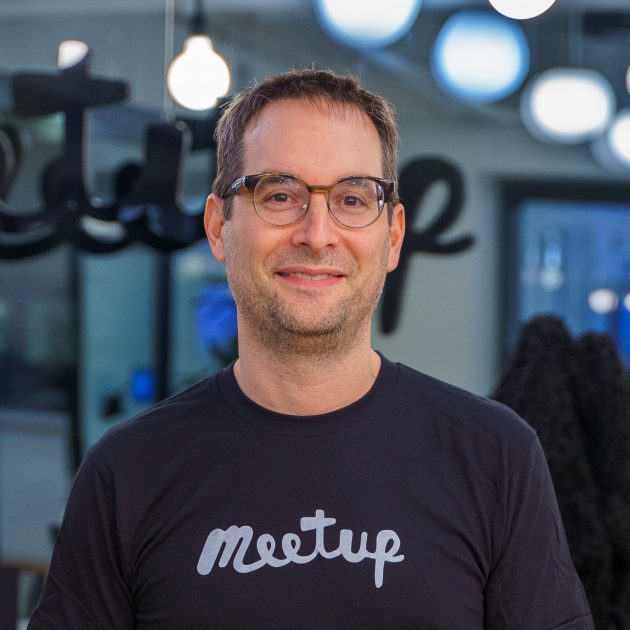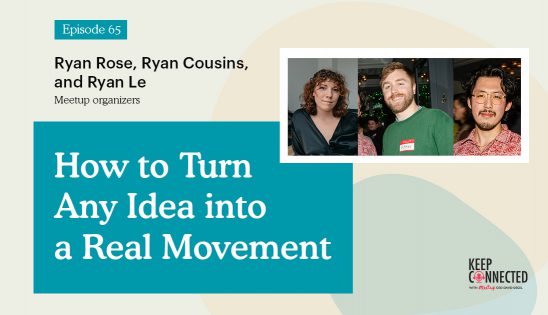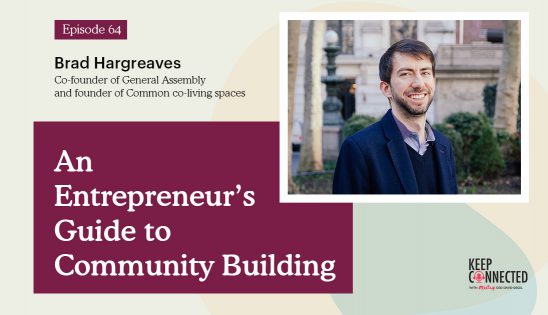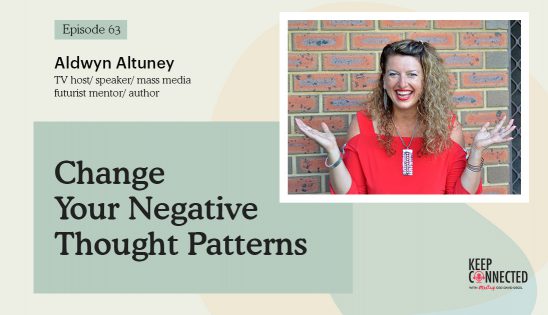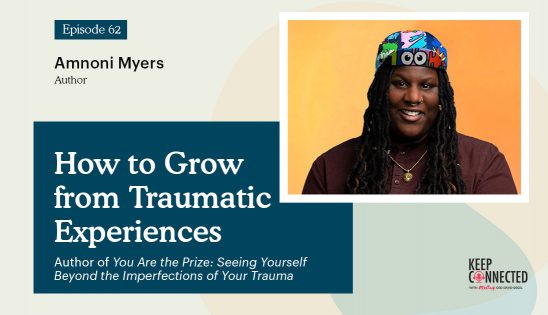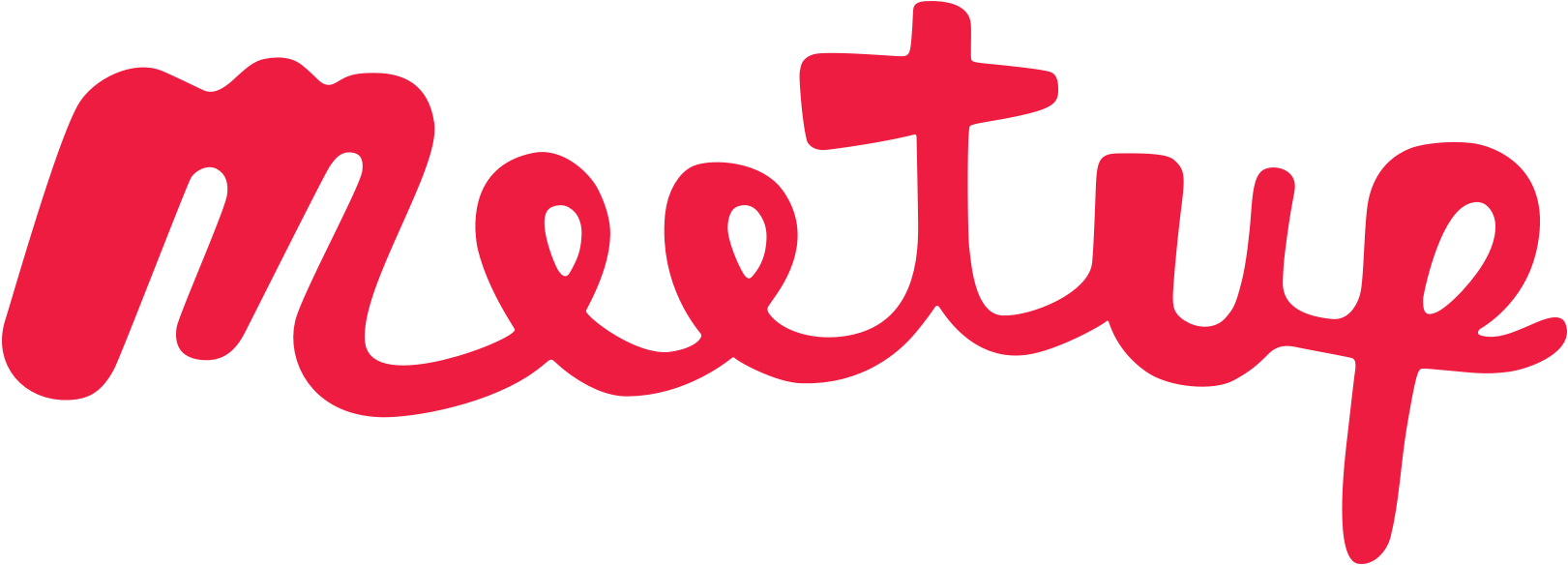Matt Schneider is changing parenting norms in a big way. His Meetup group, NYC Dads, was originally designed to help stay-at-home dads like him share advice. Today, the group helps dads from all walks of life navigate parenthood. Now in 40+ cities, Matt’s group helps fathers, parents, and guardians find a childcare arrangement that works for their families—regardless of society’s expectations. Learn how to make parenting an equitable partnership in this episode of Meetup’s Keep Connected podcast.
Ranked as one of the top 25 CEO podcasts on Feedspot, Keep Connected with Meetup CEO David Siegel is a podcast about the power of community. For more details on other episodes, visit Keep Connected on the Meetup Community Matters blog.
We hope you’ll keep connected with us. Drop us a line at podcast@meetup.com. If you like the podcast, be sure to subscribe and leave us a rating on Apple Podcasts!
Learn more about Keep Connected host David Siegel’s experience as a leader and decision maker in his book, Decide & Conquer. Pre-order your copy today!
Episode 23: Redefining Parenthood With Matt Schneider
We are interviewing Matt Schneider, Cofounder of the 20,000 strong Meetup group, City Dads, in 40 different cities. Matt is going to share with us the challenges of being a stay-at-home dad and helping to normalize dads who are primary caregivers or equal partners out there. Hope you enjoy this episode. It’s a great one.
—
Matt Schneider. Welcome.
Thank you for having me.
Matt, you do not know this, but City Dads was possibly one of the primary reasons I decided to become the CEO of Meetup. This is not about me. This is about City Dads. We’ll get to that a bit later. Let me tell everyone who Matt is. Matt is the Founder of City Dads, a group that has touched the lives of over 20,000 people. I would gather much more than 20,000 because of 20,000 dads plus the wives, plus the children.
We’re talking about hundreds of thousands of people you’ve probably impacted in 40 cities in 2 different countries. You’re international. You’re a Wharton graduate, Product Manager, Teacher, and most importantly, a dad. Tell us about why you decided to start City Dads back in 2008. What was going on in your life? What was going on in the world? The floor is yours.
First, I want to give props to my Cofounder Lance Somerfeld. He was the one that kicked things off for us. We were teachers together in The Bronx prior to either of us having kids. I’ve decided to take childcare leave. I took off. I thought it was going to be a year, but it turned out to be three years by the time Lance joined me as an at-home dad. He called me up after his wife went back to work after maternity leave and said, “What have you been doing in New York City for three years?” Everything is for moms.
It’s Mommy & Me playgroups, yoga and art class. I said, “I’ve been hanging out with lots of moms and nannies.” I haven’t thought twice about it. Lance thought we could probably do better than that. We were going to be hanging out anyway. He was the one that started putting up flyers in his building and then heard about this thing called Meetup and said, “Let’s start NYC Dads Group.”
Meetup helps people so often that the regular world around them is not servicing effectively. It’s sad and it’s true. There was so little infrastructure years ago around dads. You think about some of the stereotypes around dads like the movie Daddy Day Care and other stereotypes. What stereotypes did you see around dads, specifically of newborns? When you went to those classes, were people welcoming? What was that experience like when you went to the Mommy & Me classes?
I was always welcomed. It wasn’t that they told me to go away. When I would notice that they were called Mommy & Me, they would say, “When we say mommy, we mean whoever’s here. Daddy, it could be grandma, grandpa or nanny. We’re using mommy as an inclusive term.” We didn’t buy that. We made the suggestion and a lot of places took the suggestion. “Why don’t you call it Baby & Me class and put the emphasis on the child rather than the caregiver that’s coming in?”
From that perspective, it was recognizing that dads are in this and we want to be there. Moms want us to be there. Our partners want us to be there. It’s turning some light bulbs on. In terms of stereotypes, especially in marketing, TV shows and movies, dads were the buffoons. We couldn’t handle anything. We couldn’t change a diaper on our own without getting out the gas mask and the duct tape. We couldn’t get our kids dinner. We certainly couldn’t take care of our kids overnight without ruining their lives.
It didn’t match the dads that we were meeting in our group because, especially at that point, the guys that signed on early, we were the ones that were the primary caregivers for our kids. We were the ones feeding our kids and changing most of the diapers. We wanted to show the world that this is the real-life of dads. The dads they are showing on TV, movies and commercials aren’t us.
What’s so sad is that media portrayal directly then influences the perception of new dads of how they can be or act. It gives them a card to say, “This isn’t my domain. I’m a buffoon. I don’t know what I’m doing. This is your domain,” which is horrible for the mom, dad, baby, and everyone else. It’s quite dangerous. Are you seeing a change in how media over the last years is portraying dads or is it still as comical as it was back years ago?
There has been a change. We’ve been part of a bigger group of dads out in the world trying to create this change and show the world, marketers and media people that we are capable and competent. Nobody is laughing. It’s not funny to make fun of dads for exactly the reasons you’re talking about. Moms need us to be good partners. Moms want us to be good partners. Foisting all of the responsibilities of home life on mothers isn’t fair and doesn’t work for our lives. Media and marketers finally caught up with that.
Give me some examples of what you’ve seen of some changes happening.
Our favorite example is Huggies, the diaper company. We first met them after they launched a marketing campaign. The marketing campaign was, “We’re pulling dads together into a house. Dads in their babies. We’re going to put our diapers to the test to see if the diapers can withstand being with dads for a whole weekend.” They had this crazy voiceover of this mocking tone. “Dads are buffoons. Anything that the dads are going to do, our diapers are going to hold up to the mess.” We started as social media was starting to become a bit more powerful.
Huggies noticed. We started saying, “This doesn’t represent us. This isn’t who we are. It’s wrong to portray us as buffoons.” It happened to align with a conference that we were part of in Austin. It’s called The Dad 2.0 Conference, first year. The Huggies team came down to the conference and talked to a number of us. They ended up scrapping a lot of the campaign, changing a lot of the voiceovers. We went on to partner with them for many years after that because they did want to represent families and parents well. It was again that light bulb moment of, “This isn’t funny. This isn’t true and it’s not funny to assume that the dads are not capable of this.”
Be active and engaged in your kids’ lives.
Especially as you see how the nuclear family has changed so much, many families are two dads and a baby or two moms and a baby. The role of the mom and the dad has evolved fortunately to such a considerable degree. It’s amazing how long it has taken for the newborn parent industry to evolve. You’re leading that path. Huge kudos.
Tell us about some of the dads like you who are in the City Dads Group, leading that path. What is your typical dad look like? When I went to an event, I saw dads from all walks of life. I saw the Wharton graduate in the nice button-down shirt and tie who was taking a break during lunch break or full-time, sitting next to someone with a purple Mohawk living their life. What is the typical city dad?
Early on, we thought this was going to be a group for at-home dads. Those of us that had put that label on and said, “We’re home with our kids full-time. We’re the ones taking care of them.” We soon realized that a lot of dads out there were with their kids and responsible for a lot of kid activities and spending time with their kids. They wanted to be great dads, so we opened up the group. We didn’t want to call it an at-home dad group. We wanted to call it a group for dads of all stripes. There isn’t necessarily a typical city dad.
It’s a dad who already recognizes that they are and want to be active and engaged in their kids’ lives. We are not the organization that’s suggesting to dads, “You need to be there for your kids.” We’re the organization, the community that’s for dads that are already bought into that idea. You can be on a path and we don’t turn anybody away. The expectation is that you are active and engaged and you’re ready to dig in with the rest of us and figure this all out.
There’s the social side of it, which is incredibly important. I imagine it’s also an educational side of it. What are the other values that people gain from being part of the group, aside from the purely social side, which is probably the most important, but what other gains are there for members?
We start with the social to get guys to the table, but inevitably, as you start seeing other dads, I went to a Meetup event with a three-year-old and a newborn. Lance was there with his newborn. Over time, Lance had always been asking me questions, “What happened with Max, your older one, when he was this age? What was that stage?” You end up mentoring each other. You end up asking a lot of questions. People are shocked that dads are having at least some of the same conversations that moms are having at their Meetup events.
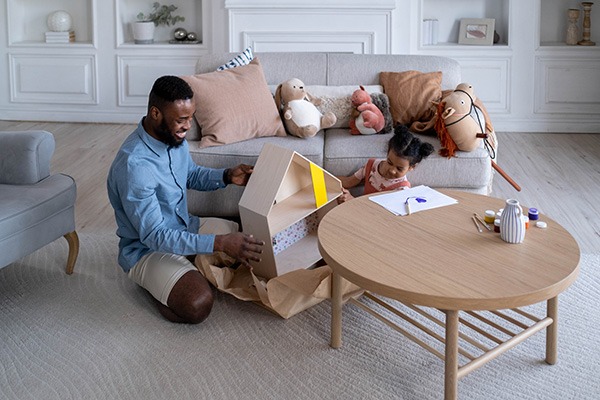
We want to know what’s in your diaper bag. We want to know how you pick that stroller. We want to know what preschool your kids are going to. For the most part, that is organic conversation. Over time, we’ve had workshops on everything from lifesaving skills to how to feed your child healthily. We’ve had different experts and psychologists come in and sit down with our group. We have a workshop for new and expecting dads called New Dad Boot Camp in New York City.
It’s a three-hour workshop where dads learn the ins and outs from dads. Dads are there with their babies in the workshop, talking about their experience of being new dads to these guys that are about to become fathers. It’s powerful. Some people buy into this sense that we are changing the way that fatherhood looks.
I would say you’re changing the way fatherhood and motherhood work as well in a typical family. I think that’s equally as important because you’re helping to normalize a truly 50/50 or equal partnership. 50/50 doesn’t mean at all times. Sometimes it’s weighted on one side, but sometimes it’s got to be weighted on the other side as well. The impact is far more than even on the father’s side. It’s also for so many other people as well.
I try to encourage people to look at a whole life. 50/50 of one piece of your life isn’t a great way to look at your life if you’ve got different aspects of your life. In every family, people are going to take on certain roles. My wife works full-time outside the house. I work full-time inside the house. She can do a lot of things if needed. She’ll do the laundry, but she generally doesn’t do the laundry. City Dads have scratched a professional itch and could go out into the workforce if I needed to and my many years of being an at-home dad.
The point that we always say is you need to find what works for your family without being inhibited by society’s gender norms that are so outdated they don’t even make sense. Especially as women succeed as they go to college, graduate school or workforce, women are succeeding in leaps and bounds. To marry somebody and say, “I’m now a doctor, but I’m the woman. I’m going to stay at home.” It doesn’t matter what you do. You go out and make money. It doesn’t make sense and that’s not how people are living their lives.
I want to go a bit more detailed on the identity impact. When someone becomes a new parent and is a primary caregiver, it’s easy for one’s identity to evolve into, in your case, Max’s dad. In my case, my three kids’ dad. That’s a wonderful thing to be an additional part of your identity. It’s a potentially dangerous thing for it to take over one’s entire identity. Unfortunately, it happens with moms that one’s entire identity ends up becoming in relation to a child. Did that happen to you? How did you combat that? Do you have suggestions for others who are new parents and thinking that through?
It happened to me. I didn’t know it was happening to me at the time, looking back. I was home for three years before we started NYC Dads Group being Max’s dad. I use that all the time. Many people didn’t know my name. I was Max’s dad. It was helping to launch the NYC Dads Group that got me out of that. Even though it was parent-related and I was still in the realm of being a dad, I was now Matt Schneider, Co-Organizer of NYC Dads Group, that gave me something to hang my hat on. It gave Lance and me a reason not to just be social. It gave us a reason to think and plan and build.
That has been what has sustained that professional itch over the last years is helping to build that and feel good about building it in a sustainable way for the life that we’ve chosen. I can ratchet things up as the kids are now back at school and their after-school activities and stuff. I’ve got more time, but in the summertime, I can ratchet it all down and say, “I’m back focused on my family.” The years has been moving that time in the right direction to create time for my family and work when needed.
You need to find what works for your family without being inhibited by society’s outdated gender norms.
I love how you talk about the right time and place for having an identity fully separate from anyone else. There’s a time and place where that identity needs to probably be a little more integrated with the other aspects of one’s life. This needs to ratchet up and ratchet down at various times and that’s the beauty of life. I was blown away when I first went to an NYC Dads Meetup event. Years ago, Scott Heiferman, the amazing founder of Meetup, wanted to expose me to some of the incredible work that Meetup has done in its history.
It was also part of the interview process where he took me around to different Meetup groups and sell how I reacted and what my reaction was. It was a great part of the interview process. He took me to an event in Central Park and I met a whole bunch of dads. Some dads of newborns and strollers, some with toddlers, some a bit older. I talked to them about the impact that it had on people. As with you, it created a community where it never existed before.
It let people be their true selves as opposed to having or pretending to be someone else and do so in a very comfortable way. I was like, “This is a company that I want to help grow and be a part of.” I wanted to thank you for starting NYC Dads and your Meetup groups. I don’t even know if I would be in this role if not for it. That’s another example of the number of people who have been impacted. You have no idea about it, but it’s enormous. Thank you.
Thank you. We appreciate it. We have always appreciated Scott Heiferman’s cheerleading. He was the big reason, especially back then, for helping us grow and putting a spotlight on us and being part of our group. He came to a lot of Meetup events.
Let’s talk about growth. You’re in over 40 cities. How did you grow? My assumption is that there are dads in New York City and maybe they moved to other cities and started groups. How did the whole growth happen from NYC Dads to so many other cities?
In every way possible, that example is one of the ways. We were NYC Dads Group for the first five years. We thought that people would follow our lead. There were other communities of dads around the country, but none that were meeting and trying to be a voice, showing the world what it looked like. We thought other guys would want to do that and they didn’t. We did have a guy who moved to Los Angeles.
He asked for some advice and he started getting things together. At some point, we started talking enough and said, “Maybe we should do this together. Rather than just giving advice, maybe we can help launch LA Dad’s Group with you.” There was no Meetup Pro at that point. There was no platform for multiple Meetup groups. We started a separate Meetup group with us, Johnny and some other LA dads as organizers. Simultaneously, a group in Chicago had already established themselves, but they wanted to be part of City Dads Group. We flipped the switch and we made an acquisition. I don’t know if they would call it that.
We had three. We didn’t ever put up a map and say, “These are the biggest markets in the United States. This is where we want to be.” We have sponsors who want us to be in these places. We put up a form on our website and said, “If you’d like to start a group in your city, fill in this information and let’s talk.” Guys started coming to us from across the country.
This was years ago. Boston, Philadelphia, San Francisco came along and it’s been this very organic group of people. Every Meetup group, every organizer, it’s hard to find the right people that can do this over time. The growth has been amazing in a lot of ways, but a struggle in so many ways, especially through the pandemic. The group is focused on meeting up in real life were challenged during the pandemic and continue to be a challenge.

It’s not easy to meet up event in real life. Though, things are coming back. Have you had in-person events?
We have 41 cities. Some guys are comfortable doing that and other guys are not, in some places and in other places. We were intentional about letting guys make choices for themselves. We don’t all fit into one box politically or any other way. There were guys that were ready to get back meeting up in person right away and guys still that are careful and need to stay at home. We’re not going to push them either way.
People are oftentimes surprised. We’re up to 70% to 75% of Meetup events that are in person. Slightly higher in the US than around the globe. We’re seeing that rise from 30%, 40%, 50%, 60%, 70%. It’ll end up going 80%, 85% and probably a meaningful percentage, 10% to 20%, will continue to be online because you could then do it across multiple cities. It’s nice seeing the number of events getting back in-person, especially outdoor events. We’re seeing a lot of outdoor events, which is great.
You referenced Meetup Pro. Most people don’t know what that is. Meetup Pro essentially allows an organizer to have a network of multiple different locations and to have advanced analytics and other data around those different locations. City Dads has 40 different locations. You could leverage that pro capability. Enough about that. Do you have any specific stories about any dads? It could be about Lance or other dads that have been part of it? Did anyone help them to get their next job or help them in ways that you would never have expected?
It still surprises me when we have a Dad’s Night Out. A guy will say, “This is the first time I’ve been out by myself in five years.” Men are so terrible at maintaining their group. Women actively work on maintaining friendships and relationships and men don’t. Many people in New York City move here. They don’t know anybody here. They have no family here. They have their partner and they have their kid.
They may go to work, but to have a social experience where you leave your work with your partner, wife, husband, whoever it may be and go out and meet friends is a milestone for some people. That was a little shocking that we were creating that. We were glad that people were coming out. We were also shocked by how open the guys were with each other.
There’s this impression that men don’t talk. Yes, we do, given the opportunity to sit down. There’s no pressure. If you don’t want to share what your kid had for breakfast, no problem. We’ve had no serious conversations about what your kid had for breakfast. We’ve sat down with authors that introduced deeper conversations where guys ended up being very vulnerable and appreciative of the fact that they could share in a safe place. That’s what sustains us. We can see those moments where guys do feel something and are there because they need to be there.
Matt, it’s not a coincidence. You’re creating an environment where people feel vulnerable and comfortable sharing their stresses, challenges and things that they may not like about what’s going on in their life. It’s a tribute to the culture that you create within City Dads and in your group that happens.
We can’t tell them that’s going to happen, though. Sometimes people call us a support group and we are supportive, but guys aren’t always looking for a support group. They don’t know that they’re looking for a support group. We leave open the option most of the time that you can be vulnerable.
It’s almost like a Trojan horse. Leave with the events, leave with the fun and the Trojan horse is that people be helped, which is the way that a lot of things happen to be. Was there an event that ever stands out in your mind like, “This is one of the best events we’ve ever had?” I know you’ve had hundreds of events. It’s hard to pull back for years, but is there one event that stands out as a success for a particular reason?
It’s a privilege in the family to have one person be the primary caregiver who takes a step away from the workforce.
We have had thousands of events at this point. One of the amazing things that’s come along is Broadway shows. We’ve been able to get, say, 50 sets of tickets to go to a Broadway show. Pairs of dads and their kids, many of them going to a Broadway show for the first time. To be able to do that as a group is pretty remarkable. Pre-COVID, around Father’s Day, we used to do a family picnic. It’s not always dads and kids. Whole families came out for a picnic in Central Park.
First of all, that’s nice. Being able to expand it outside of just the dads and to meet the other partners, other dads or other moms that are their significant others makes for even greater community building.
For women to meet each other, especially for those of us that are at-home dads, for the professional women to meet each other. As rare as an at-home dad is, it’s not rare to be a professional woman but to have a partner that’s an at-home dad comes with a unique set of experiences and challenges. It’s a great way for families to meet and connect.
I heard some stories about the Whitney Museum. Tell us about what happened at the Whitney Museum.
That was one of our earliest Meetup events and told us that we had something here. It was 3 or 4 of us sitting at the Whitney Museum. All of us had our Babybjörn-type carriers on. We had sat down for a moment to take a load off carrying our babies around. I joke about the ladies who lunch that were at the Whitney that day coming by, seemingly like we were one of the exhibits at the museum. It was, “I’ve never seen four men together with their babies before. What are you doing here?” If we got a group together, I imagine the exact same thing would happen. Progress or not, it’s still unique for big groups of dads to be out with their babies at the Whitney Museum. I might be wrong.
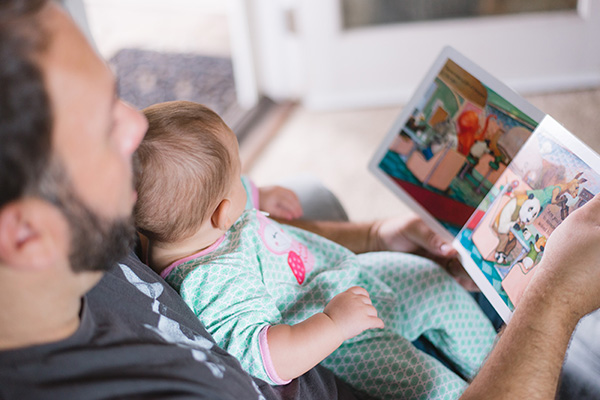
That’s a bit sad that it would still be perceived as modern art to have a bunch of guys in strollers. There has been progress. Whether it’s gone from 1% to 5%, it’s still a much smaller percentage than it could be.
The fact of the matter is it’s a privilege to have one person be able to be a primary caregiver, be the one who takes a step away from the workforce. That’s a pretty small group to begin with and then to have dad be the one doing it. For that dad to find a community is still unique.
Matt, I have three kids. We got started a bit earlier than you did. We got married at 24 and had our first kid at 26. It was crazy. When I was working, paternity leave was one week. I kid you not. I remember when I had our third kid in 2007, I was jumping for joy because paternity leave was a whopping two weeks long. When I think about the world now and I think about some areas are similar to how they used to be and some have dramatically changed. One of the areas that have changed is paternity leave.
That’s probably one of the best things to happen for both men, women and kids. At Meetup, we have a four-month paternity leave. In many tech companies, there is a multi-month paternity leave. We have the same paternity and maternity leave. That was not the case beforehand. It is because of people like you and your work that has helped to increase paternity leaves, which someone once said to me, “What’s the best thing that in my mind has helped build women’s careers?” It is paternity leave. Can you talk a bit about that and how you think that’s impacted being a dad and a nuclear family?
We embraced this conversation very early on, especially when we recognized we wanted to be a group for dads of all stripes. I didn’t claim that I was a better dad because I was the at-home dad versus the working dads. Working dads coming to our Meetup events never felt like, “You’re a working dad. You’re not involved in your kid’s life.” I did recognize that I had privileges opportunities that working dads didn’t have simply because of the workplace. I went out and found these different groups and people to talk to. The paternity leave conversation is new.
It wasn’t something people were talking about the companies were embracing. We had a panel talking about paternity leave and dads being involved with their kids. Scott Heiferman was on the panel and you’ll have to get the story from him directly. He was the CEO Representative on the panel, the business person representative, the leader representative. We pushed him pretty hard on creating a workplace that was friendly for dads and paternity leave being one of those conversations.
Meetup was one of the first, especially in the New York Tech Community, to embrace paternity leave. From what Scott tells me, that funneled out to other tech companies in New York and across the United States. It is these light bulb moments to recognize it’s not just men who were impacted by you giving 1, 2, 4 months off. It’s the women in the workplace that are also dramatically impacted. If women take four months off and their colleague with the same job title takes two weeks off, how are they possibly going to be able to maintain a parallel career?
That is a part of the conversation that people can grab onto to say, “We’re not giving a guy a vacation for four weeks. We’re giving him an opportunity to be a dad at home to become a parenting partner.” We’re also creating a workplace where the expectation is you are more than just an employee. You are also, in this case, a dad and you need to tend to that part of your responsibility and be a great employee and be a great dad.
Create a workplace where the expectation is you are more than just an employee.
You’re a whole person. Understanding and having companies treat people as whole people, not just as workers, keeps them more effective in their jobs, retain people in their jobs and the right thing to be doing. Earlier in my career, I remember this so well. I overheard someone saying one of the most despicable things, which was something to the effect of, “This person got married. They’re probably going to be taking maternity leave soon or in the next year or two. Let’s evaluate that.”
It’s still happening.
It is so disgusting. Once you make maternity and paternity the same thing, that conversation doesn’t happen anymore. It’s sad that we have to do something to keep that conversation from happening because it shouldn’t happen in the first place, but it helps that conversation.
The problem is it’s not about policy. It’s about creating a workplace culture where men will take the leave and are encouraged to take it. Technology is one of the toughest industries because being at work, doing your work, working 80 hours a week in so many companies is the norm and you can’t take four months off easily in a culture like that. It is a change of culture that not only from a policy standpoint allows people but encourages and holds up role models. We’ve done panels at companies with dads that have taken paternity leave to announce to the future fathers and mothers of the world that men and women should take this paid family leave because we put it in the policy. We want you to use it.
We’ve had about a dozen men that have taken paternity leave in the few years that I’ve been here. There may be one, but I can’t think of an example where the person didn’t take the full amount and that’s important. I like your call there. Thank you. We have the last section called our rapid-fire questions, where I’m going to ask you a bunch of questions. When was the first time you saw yourself as a leader dad?
This may sound silly, but I remember feeling it as a child, eager to be recognized as a leader by teachers and eager to find ways even early on to lead.
You are a teacher. You’re a traditional teacher. In my mind, you are teaching so many dads and so many others about what your craft is. You’re teaching in a very different way. That’s beautiful.
Thank you.
What is the best decision you’ve ever made in your life and why?
How can I not say to marry my wife? There’s no question about that. We met at Penn. We met during our sophomore year. We were friends for years. We started talking about the life that we wanted to live and build together. Even then, we were talking about the life that we have now.
If you could access a time machine and you could go anywhere you want at any point in time, where are you going?
I would love to come back to the Rat Pack ‘60s New York, maybe ‘50s, the Mad Men. That time in New York seems compelling.
One thing that’s on your bucket list that you want to accomplish sometime in life?
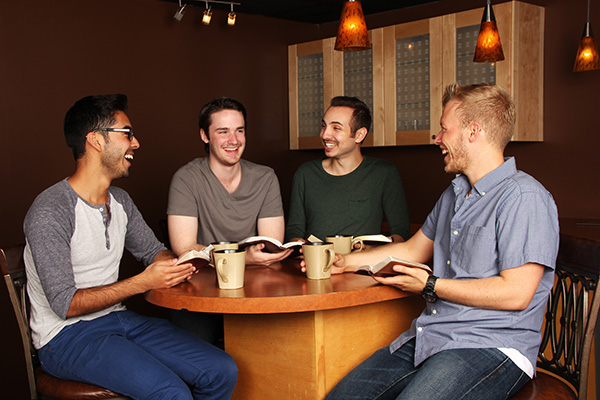
I would love to live abroad. I have never lived abroad.
Last question. You’ve had such a big impact on dads, moms, kids and families. What do you most want to be remembered by?
Opening minds to dads as we are. Recognizing this is the best time in the history of the world to be a dad. The definition of being a dad requires so much more of us than it ever has before. A different definition of fathers where the expectation is that we are active and engaged in our kids’ lives.
Matt, the impact you have on what the role of a dad can and should be in terms of an active, leading, potentially participant family is so beautiful. Thank you so much for being part of the show. Thank you for everything you do day in and day out and for teaching everyone, our readers.
Thank you for this show. Thank you for having me on. Thank you for Meetup. Meetup has been a central part of our years and we couldn’t have done what we’ve done without it.
—
Thanks for reading to the show. Perception is reality. When the media portrays stay-at-home dads as completely incapable, that only exacerbates a problem that exists. Huggies got that and Huggies did that type of a shift. That’s a beautiful example. There is so much more work that has to be done in terms of normalizing stay-at-home dads and dads as primary or equal caregivers.
I know that with Matt and other people’s help, that is going to be changed in the future. I hope you enjoyed the show and subscribe. If you’re a dad or a mom, if you’re neither dad nor mom, subscribe and leave a review because we always want to hear feedback from our readers. Remember, let’s keep connected because life is better together.
Important Links:
- City Dads
- NYC Dads Group – Meetup
- New Dad Boot Camp
- Meetup Pro
- Meetup – City Dads Group
About Matt Schneider
 Matt is the co-founder of City Dads Group, a Meetup community of dads navigating fatherhood together in 41 cities across the United States and Canada. Matt works with companies, brands, and writers to break down the barriers standing in the way of men being the best dads they can be. Matt also hosts The Modern Dads Podcast, a show for dads and moms active and engaged in the decisions, the drudgery, and the pains and the joys of parenthood.
Matt is the co-founder of City Dads Group, a Meetup community of dads navigating fatherhood together in 41 cities across the United States and Canada. Matt works with companies, brands, and writers to break down the barriers standing in the way of men being the best dads they can be. Matt also hosts The Modern Dads Podcast, a show for dads and moms active and engaged in the decisions, the drudgery, and the pains and the joys of parenthood.
Mary Garcia (she/her) is Meetup’s Content Manager and editor of the Community Matters blog. When she’s not writing, Mary organizes a swamp fiction book club on Meetup. Find her on LinkedIn.
Last modified on December 13, 2021


